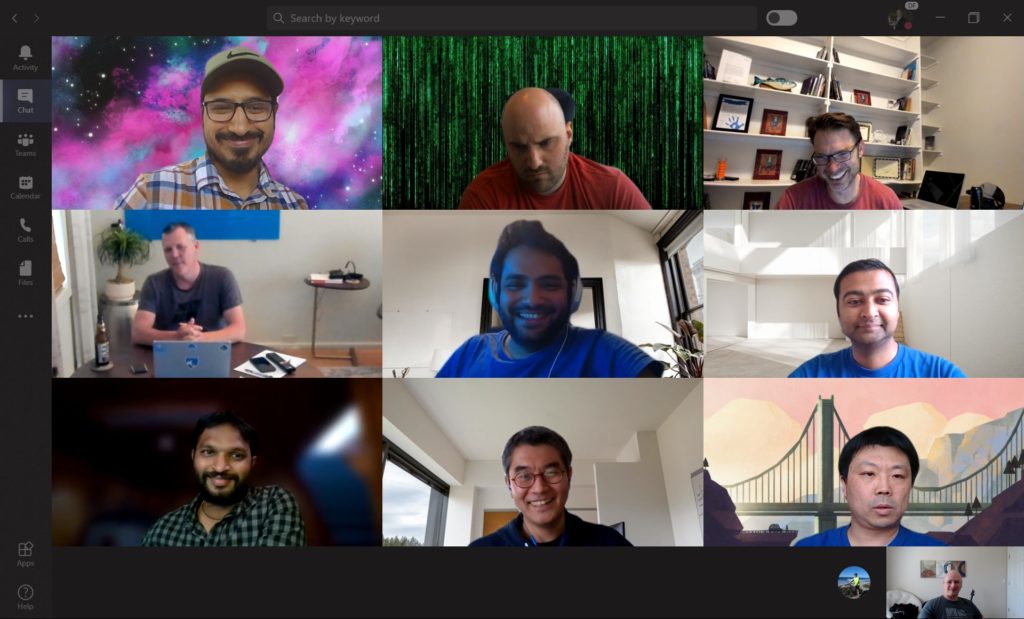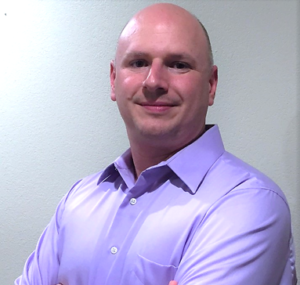With the creation of any team, it’s important to have proper onboarding, a strong sense of corporate culture, and the kind of relationships that transform a disparate collection of coworkers into a family.
“One of the big challenges we’ve had on this team occurred when we had four new hires start just as COVID 19 stay at home orders were being issued,” says Amir Littman, cloud solutions director at Microsoft supporting migrations to Azure. “When you have people come in who’ve never worked at Microsoft it’s hard to get started. The typical ramp-up time increases dramatically when you can’t take people to the office to forge new relationships.”
Littman’s new team has found a rhythm to ensure everyone is being included while working from home.

Setting the tone
“I try to talk to everyone at least once a day, making sure they are comfortable, getting them integrated and familiar with the process, and also remembering to take care of their families who may also be feeling the strain,” Littman explains. He points out that all four of his Sunnyvale team members joined recently while others in Arkansas, Florida, and India have been working together for quite some time.
Cloud solutions architect William Alika Smith was technically onboarded at Microsoft last year but transferred to the Bay Area the day before stay at home orders were issued. “Amir describes the team as a family,” he says of the welcoming environment he’s experienced in the weeks since. “We help each other whenever possible. Everyone truly cares about how each person is doing, even us newer hires that have only been on the team for a few weeks. We talk candidly and if I ever have a concern, I am confident that the team has my back.”
Know the individual
 These days everyone is working from home, but not everyone is in the same situation. “Someone who is young, with no children, might be bouncing off the walls bored at night, eager to get back to work,” Littman (pictured right) explains. “Meanwhile, people with small children and no childcare have responsibilities during the day making it harder to focus. One of our team members, his wife is a physician who works in a hospital, and he has a two-year-old at home so flexible working hours help immensely.”
These days everyone is working from home, but not everyone is in the same situation. “Someone who is young, with no children, might be bouncing off the walls bored at night, eager to get back to work,” Littman (pictured right) explains. “Meanwhile, people with small children and no childcare have responsibilities during the day making it harder to focus. One of our team members, his wife is a physician who works in a hospital, and he has a two-year-old at home so flexible working hours help immensely.”
It’s important to know each member of the team as a human being and remain willing to adjust as a team in a way that supports everyone’s circumstances. For instance, one of Littman’s Sunnyvale team members had recently relocated to a one-bedroom apartment in the area for his new job. “Knowing no one locally is tough, so I told him: working from home is relative. If you have friends in Phoenix, Arizona and want to go live with them, make that your home while this is happening. If you want to be with your parents or loved ones, go.”
Make things personal
It’s one thing to make introductions, but since his team also works with customers, Littman has made it a point to encourage one-to-one phone calls, participation in other people’s group meetings to gain context, and turning on their cameras so others will get to know their faces.
“We use Teams, and we mandate that everyone put their video on as much as possible,” Littman reasons. “We have team meetings, cross-boundary meetings where different teams all work together in concert, and we have a ‘buddy’ system that partners the new people in Sunnyvale with established people on the team in other locations.”
Connecting new team members with other locations that have historical knowledge and regional strengths gives the team a familial feel. Littman notes that strong partnerships with those leaders like Bill Hall, local Bentonville CSU Director, make jumping on video easy because everyone is doing it. “Like family, it’s always good to see each other, even if there are hats being worn or kids popping in,” says Hall.
Cloud systems architect Goutham Guduguntla says he has taken such advice to heart. “With Teams, it’s important that you go face-to-face. I always turn on my camera,” says Guduguntla, who joined the team on the day they were notified to start working from home. “I also schedule less defined meetings, which has helped us get to know each other better.”
Celebrate each other
Fawad Shaikh, a principal cloud solutions architect who joined the team in February, admires everyone’s courage in the face of adversity. “We have a meeting every Monday, and that begins with about ten minutes of us giving kudos to those who deserve it,” he explains. “That builds camaraderie, it’s a refreshing way to start a meeting, and it gets everybody pumped up.”
“On our team, we also do Friday afternoon happy hour,” Littman adds. “That’s the time we’ve set aside for watercooler talk, to keep our sanity.”
Likewise, team member Taka Shinagawa who joined the same time as Shaikh notes, “Regardless of the current limitation for face-to-face meetings under COVID-19, my experiences at Microsoft have been seamless, smooth and enjoyable thanks to the supportive culture in my group and video format of Microsoft Teams.”
Deliberate and inclusive digital activities are essential to establishing a team. Within Microsoft, people like to quote the saying that “culture eats strategy for breakfast.” Taking time to empower new team members proves invaluable in the long run and turns mantra into action. Successful onboarding is still happening in the Bay Area thanks to managers like Littman. If you’re interested in finding a role opportunities can be found here: https://aka.ms/MicrosoftBayAreaCareers.



